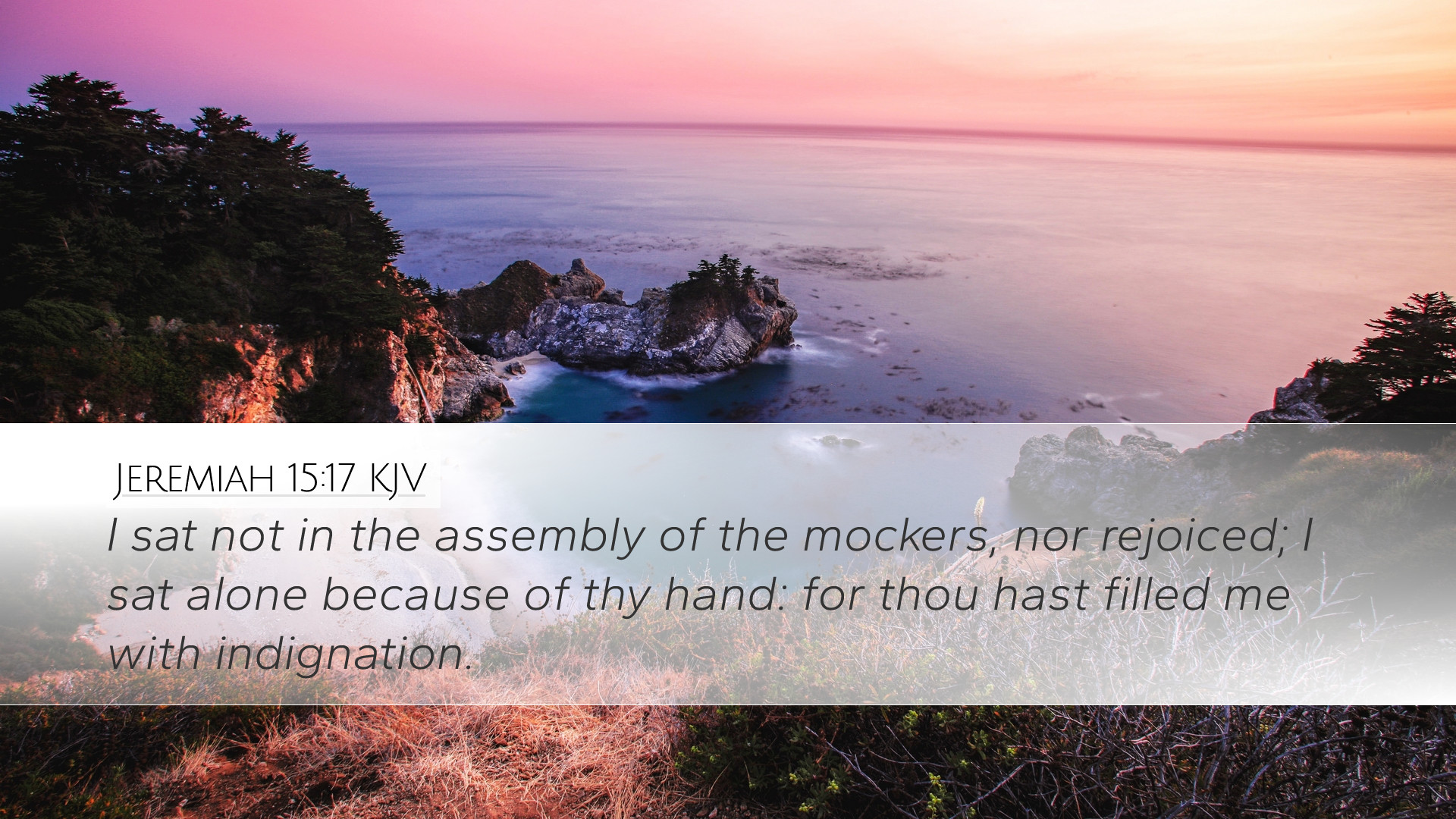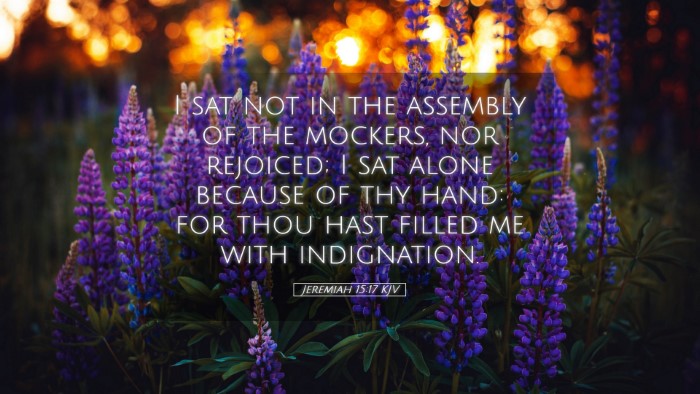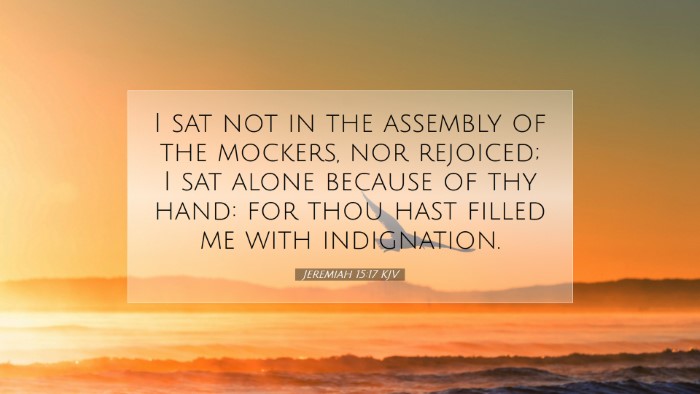Commentary on Jeremiah 15:17
Jeremiah 15:17 states: "I sat not in the assembly of the mockers, nor rejoiced; I sat alone because of thy hand: for thou hast filled me with indignation." This verse captures the profound sense of isolation, suffering, and resolute dedication found within the prophetic experience. To understand this verse accurately, we shall examine insights from esteemed biblical scholars, including Matthew Henry, Albert Barnes, and Adam Clarke.
Contextual Overview
This verse is nestled in a chapter filled with Jeremiah's laments and contemplations on his role as a prophet amidst rampant social decay and spiritual apathy in Judah. Jeremiah’s ministry was marked by a divine calling that often placed him in opposition to the prevailing attitudes of his time. His deep commitment to God’s truth led him into profound isolation, a recurring theme in the lives of God’s faithful messengers.
Analysis of Key Phrases
-
"I sat not in the assembly of the mockers":
According to Matthew Henry, Jeremiah refrains from consorting with 'mockers'—those who ridicule God’s word—showing his holiness and distancing himself from the irreverent behavior. This establishes a clear line of demarcation between the prophet and the wicked, reinforcing the idea that true fidelity to God often results in social estrangement.
-
"nor rejoiced":
Albert Barnes comments that this statement indicates not only Jeremiah's refusal to participate in the mockery but also reflects his internal grief and turmoil over the prevailing unfaithfulness of his people. The absence of joy speaks to the seriousness of his mission—he cannot celebrate when his nation is steeped in disobedience.
-
"I sat alone because of thy hand":
This phrase reveals the weight of divine authority upon Jeremiah. Adam Clarke expounds that this loneliness is a direct consequence of God’s calling on Jeremiah’s life. He is compelled to stand apart, highlighted by the divine hand that guides and burdens him. His solitude stems from his unwavering commitment to God's purpose.
-
"for thou hast filled me with indignation":
Here, Jeremiah acknowledges that the emotion driving his solitary state is rooted in God’s sentiments towards sin. Henry notes that such indignation is a righteous anger—a passionate response to the wickedness around him, instilled by God. This aligns with the prophetic tradition of being burdened by the sin of the community.
Theological Implications
The profound isolation of Jeremiah signifies the often challenging path of a prophet. His reluctance to join the assembly of mockers emphasizes that God's servants must sometimes bear the brunt of spiritual and social alienation. As Barnes notes, the influence of societal values can lead even faithful individuals to compromise, yet Jeremiah exemplifies steadfastness. His experience serves as a powerful reminder for pastors and theologians about the cost of discipleship and the persistent call to uphold righteousness amidst a culture of mockery.
Application for Contemporary Believers
In the face of modern-day challenges, believers are encouraged to stand firm in their faith. Just as Jeremiah felt compelled to separate from those who scoffed at God’s word, contemporary Christians are called to reassess their associations and priorities. Clarke reminds us that this separation does not equate to a lack of love or concern—it indicates a commitment to living out the truth in a world that often dismisses it.
Conclusion
Jeremiah 15:17 encapsulates the duality of a prophet's life: the heavy burden of spiritual integrity and the consequent isolation that may follow. The insights from Matthew Henry, Albert Barnes, and Adam Clarke provide rich layers of understanding that affirm the dignity of Jeremiah’s struggle and the universal call to uphold God’s truth in a dissenting culture. As one contemplates this verse, we are reminded that standing alone for God's truth is often more noble than standing with the multitude in compromise.


